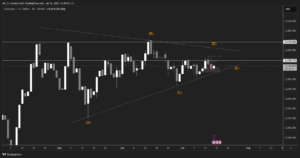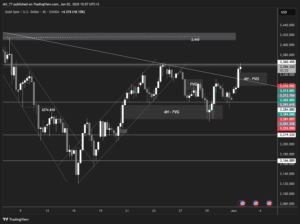European markets are heading for a positive start of the open after a mixed close yesterday and despite weakness on Wall Street overnight.
· UK unemployment falls to 3.7%, the lowest level since 1974, wages incl. bonuses jump 7%
· GBP/USD & FTSE extend their rebound
· US retail sales are expected to rise 0.7% MoM in April; could strong sales help the USD to rebound?
Hugely disappointing data from China on Monday, which highlighted cracks appearing in the world’s second-largest economy as the COVID lockdowns continued, hit market sentiment.
A steep drop in New York manufacturing in the US added to the downbeat mood. The Nasdaq bore the brunt of the selloff, closing 1.2% lower, while the Dow Jones eked out a positive close. US treasury yields remained below 3% as concerns over growth fueled bets that the Fed will act more prudently hiking interest rates.
Today, European markets are heading higher, helped by some optimism in Asia overnight as some lockdown restrictions on Shanghai were relaxed.
The FTSE is set to open 0.5% higher, and the DAX is pointing to a 1% jump on the open after closing 0.6% lower yesterday.
UK jobs data
Data showed that the UK labor market continues to improve; the unemployment rate unexpectedly ticked lower to 3.7% in the three months to March, down from 3.8%, taking it to the lowest level since 1974, which is not that surprising given that there are still around 1 million vacancies yet to be filled.
The timelier claimant count revealed that the number of people claiming unemployment benefits dropped by 56.9k in April after falling by 81.6k in March.
The biggest surprise came from average earnings, including bonuses which surged 7% in the 3-months to April, up from 5.6% and were well ahead of the 5.4% forecast. However, average earnings excluding bonuses rose more modestly to 4.2%, up from 4.1%, which is still well below the inflation rate. The data suggests that companies are using bonuses to attract or retain staff rather than raising wages in these uncertain times.
The data comes after the Treasury Select Committee grilled BoE Governor Andrew Bailey yesterday. He warned of higher inflation and worrying rises in food prices, painting a dark picture for the UK economic outlook.
GBP/USD fell 4% across April and extended the selloff into May, hitting a 23-month low of 1.2155 last week. The pair has since been in recovery mode since, rising back above 1.23 and aiming towards resistance at 1.2410.
The FTSE has also recovered strongly from the 7160 May low and looks to test resistance at 7500.
US retail sales
The US economy appears to be on a more solid footing than the UK, especially when considering retail sales. US retail sales have remained resilient even as inflation surged to 8.5% YoY in March, a 40-year high. Expectations are for retail sales to rise 0.7% MoM in April, up from 0.5% in May, even as consumer sentiment tumbles to an 11-year low.
US dollar index fell at the start of the week, pulling away from its 20-year high as it traced treasury yields lower. Today, the USD is extending that decline towards 104.00, even as yields rebound.
Disclaimer: This article is not investment advice or an investment recommendation and should not be considered as such. The information above is not an invitation to trade and it does not guarantee or predict future performance. The investor is solely responsible for the risk of their decisions. The analysis and commentary presented do not include any consideration of your personal investment objectives, financial circumstances, or needs.





